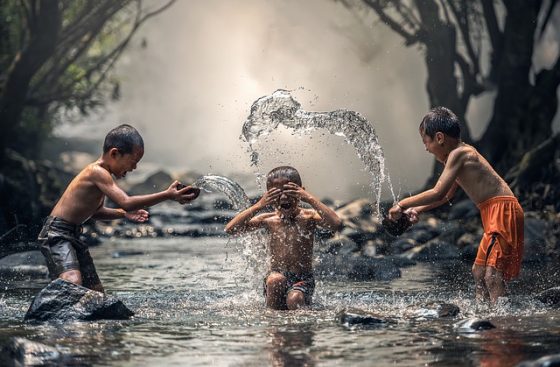Pros of linking rivers :-
- Some rivers cause floods and some other rivers do not have sufficient water, thereby causes droughts in the nearby areas. Interlinking these rivers will achieve water-balance and will solve the problems of floods and droughts to a great extent.
- Agriculture in India is highly dependent on monsoons. Many farmers face losses if there is no sufficient rainfall in the year, and are slipping into poverty. Interlinking of rivers can solve this problem as it reduces the dependence on rainfall.
- Linking of rivers can help in installing hydropower plants in many places.
- These projects will create a lot of jobs, which can temporarily reduce the unemployment problem in India.
- Not just India, but many countries are working on water transfer projects from many years. Though there are some negative consequences, these projects proved beneficial in many cases. China is very successful in implementing inter-basin water transfer projects.
- This will make many areas habitable. Currently some rural areas are facing severe water shortage and this situation is forcing people to migrate to other areas.
- More inland water ways can be developed, and thereby transportation costs will reduce.
Cons of linking rivers :-
- Rivers flow naturally. Interlinking and diverting the rivers’ flow causes interference with nature and hence it may threaten natural ecosystem.
- These projects are very expensive. Instead of spending such a huge investment on interlinking of rivers, it would be much better if that is invested in improving ground water levels by installing soak pits, improving watershed management etc.
- Interlinking of rivers demands construction of many dams, which takes up a lot of land and a part of forests in some cases. Reducing the space for forests can impact the cycle of waterfall. Construction of dams causes displacement of many people on the other hand. Many of these projects require large dams, which face strong opposition from environmentalists.
- Many rivers in India are polluted. The pollution levels are different for different rivers. All rivers that are interlinked can become polluted if they are linked.
- Some are of the opinion that these projects are not practically possible, because rivers change their directions periodically.
- Currently states have authority over rivers that are in their region. With this project, these rivers can become a property of center. There are already many disputes among several states regarding river water sharing. Linking rivers may aggregate the disputes.
Conclusion :-
Interlinking of rivers have many benefits. But this should be the last resort. India receives plenty of rainfall, but most of these rainwater is going into drains. If we capture all these rainwater, India will not face water scarcity in the coming years. If India invests enough on water conservation mechanisms such as rainwater harvesting, watershed management etc on a war-footing, we may not need Inter-basin water transfer projects.
[polldaddy poll=”10044246″]
Your Turn…
What is your opinion on this topic? Join in the Group Discussion by adding your views in the comment section below. Subscribe to our blog to read answers to trending GD topics.
Copyright @ Group Discussion Ideas.

